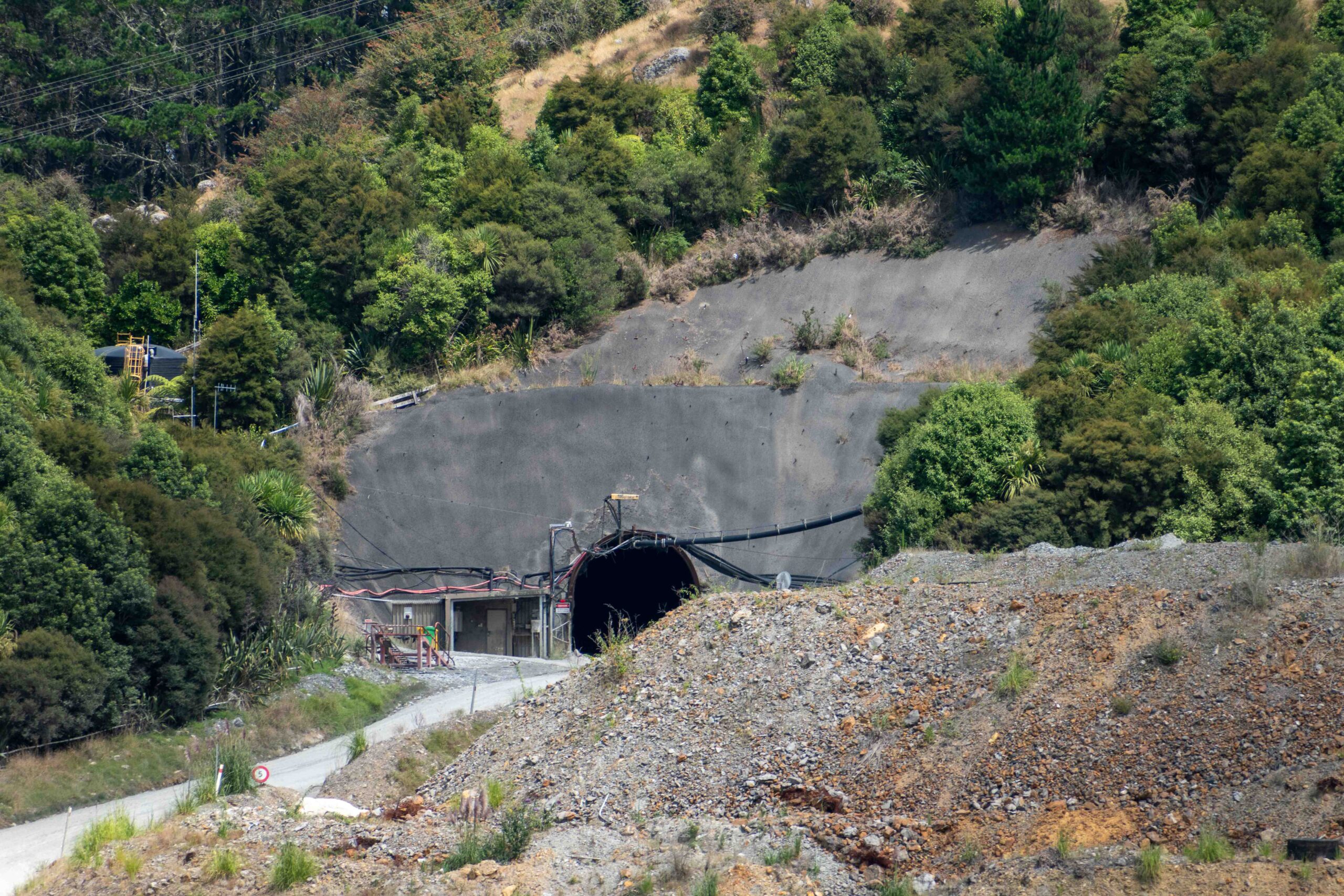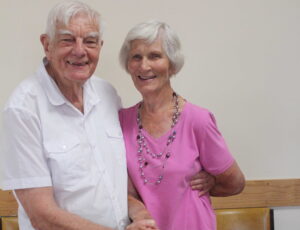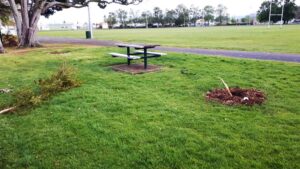Mining has long been synonymous with Waihī, from the first gold discovery on Pukewa Hill in the 1870s. Yet when Minister Shane Jones arrived on January 31 to announce the government’s new mining strategy, he was met with a large throng of protesters against the industry.
With these conflicting opinions hitting the spotlight, The Profile wanted to know what everyday people in Waihī think of mining. We canvassed the main street on a busy Tuesday morning, and found most were proud of their town’s history.
“It’s employment for people. Without that, there wouldn’t be Waihī. My husband and I both think it’s good for the town – if it wasn’t there, Waihī would be dead,” Karen said.
Up near the pumphouse, a large group of women were waiting for friends. Lynette, Kay and Josie said the mine was the backbone of the town.
“We love it. If you don’t love mining, don’t move to Waihī. In a perfect world, no one would want it, but it brings money to the town. It’s been here for years,” they said.
“I think in this day and age, the gold companies are aware of the environment, and they’re very respectful of it too. Sometimes I think they’re more aware of the environment than the protesters, because the protesters go and walk all over the bush with their signs and everything, and they drive around in electric cars and with cellphones and wear jewellery. At least we’re not hypocrites.”

Some passers-by were fairly circumspect. Margy, a visitor from Whangamatā, said while she worried about the environment, it was hard to justify being concerned when mining was doing so much for employment.
“I just think it’s good for the country if it’s going to boost our economy. Which is totally wrong, probably,” she said.
Another, anonymous bystander was more vocal about his dislike.
“If things are all equal and to help the environment, they need to be held accountable… I’m sure Waihī has more environmental issues regarding mining than any other district in New Zealand.”
For Brian, mining was a tricky issue.
“I have my foot in both camps. I vote Green, but I’m okay about mining in Waihī, because this traditionally is a mining town. I do worry about what profits we get out of it, what royalties they actually pay,” he said.
“It’s nice to have a pretty lake, but more could be done around here. The new opencast is pretty close to where I live. I just want to see a benefit from it.”
For the relatively few people who disagreed completely with mining, it was money at the top of their minds.
“I don’t like it – it all goes out to Australia instead of coming back into town. Where’s all the gold going?” Joan asked.
“New Zealand needs to open their eyeballs up and stop selling everything off. Gold is a commodity that you do not want to get rid of, you want to keep it in New Zealand,” Veronica agreed.
It was safety that was Rob’s main concern, however.
“I think that without the mines, Waihī wouldn’t be what it is,” he said.
“One area of concern I’ve got is with the Martha Mine, they’re planning on filling it full of water. I just think it’s going to be too deep. I worry about the water level with the primary school over the road… [but] I don’t object to them extending.”
One thing almost everyone agreed on was the support the mining operation offered to the community.
“They provide a lot for the school. They provide scholarships for academics and trades. They run a driving programme that helps people get their restricted, which is cool as well. It brings so much money in for the town,” said Izzie and Evah, who had wandered down from Waihī College.
“They give a lot of money to the schools, any community events you apply to OceanaGold for funding and they will contribute. People don’t realise what else they do. If they left tomorrow, everybody would feel it,” said the women’s group.
The final word went to Pop, as he whizzed down the street on his motorised scooter.
“I don’t care. You’re not going to stop the Americans from doing it,” he said.
“It’s had its ups and downs. Sometimes it’s good – they did the road up, there’s one consolation about it.”










